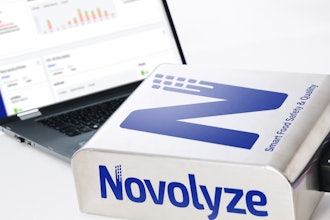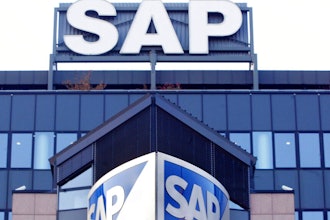With a tight labor market, global competition, and increasing regulation, manufacturers today already face considerable challenges that continuously threaten operations. So perhaps it’s paradoxical that technology — the very thing that’s supposed to automate workflows and increase productivity — continues to be one of those threats.
New developments in automation and robotics, the Internet of Things (IoT), and cloud services (among others) hit the market every day, but these rapidly advancing technologies and digital transformation initiatives that are supposed to help manufacturers do business more efficiently are proving to be more of an obstacle than an advantage.
Many manufacturing organizations struggle to keep up with the latest technology in part because they don’t have the IT infrastructure to support new systems and applications. But it’s also partly because of outdated procurement processes. The research, vetting, approval, and purchase measures required to deploy a new EDI platform or warehouse management system (WMS) application, for instance, often consume so much time and effort that another, more innovative solution is already on the market before installation ever begins.
Such complex processes can paralyze corporate and IT decision-makers seeking the right course of action. Any momentum to make the upgrade disappears, budget for the project gets reassigned, and the business ends up with the same legacy or homegrown technology tools that it set out to replace.
As-a-service business models are exploding in popularity in the subscription-driven cloud era, and have lowered the hurdles to technology adoption for manufacturers in all segments. One new approach that’s quickly redefining how manufacturers interact with their customers and partner networks — their revenue-generating communities — is the as-a-service B2B integration platform.
Why B2B Integration?
For many manufacturing organizations, long before a product is ever sold — or even manufactured — the design, development, parts and materials sourcing, testing, and marketing have to happen. This means there are numerous B2B considerations manufacturers must support before delivering on their B2C promises. Thus, smart B2B and cloud integration become critical to delivering a better B2C experience.
Global manufacturers must embrace increasing connectivity via digital economies and employ B2B digitization to lower costs, automate processes, and improve product quality, but the number of systems, applications, and devices enabling these organizations to compete also increases. Manufacturers, then, are best positioned to succeed when they can do business efficiently with every corner of the supply chain, which includes suppliers, distributors, wholesalers, 3PLs, fulfillment centers, and of course, the end customer.
But the modern supply chain is more integrated, more frictionless, and more demanding of real-time visibility. Traditional digital communication platforms rarely deliver on such formidable requests because they can’t support every single secure communication protocol, file transfer method, and data format. But full support for each of those, including EDI, XML, and spreadsheets, are essential for modern manufacturers to bring on new customers, expand business, and increase revenue.
Consider some of the ways manufacturing organizations communicate today. They might:
- Upload, download, and ingest engineering design files into a document management or ERP application
- Exchange customer and supplier information using SFTP and OFTP2 connections
- Send encrypted payment data to banks over AS2 with TLS 1.2
- Use all standard of EDI to exchange purchase orders, invoices, and advance shipping notices with global retailers
Managing all these B2B communication demands using an arsenal of homegrown, legacy, and one-off integration solutions, however, is no longer a viable strategy.
Canada-based Mondetta Clothing Co. manufacturers apparel, activewear, and performance gear and constantly expands its global presence. But the IT infrastructure core to bringing on new business and meeting customer SLAs, according to Mondetta system analyst Andre Barbosa, is repeatedly tested by emerging communication demands.
“We do business with customers all over the world, many of which have very manual B2B and EDI processes,” Barbosa said. “But the ability to flexibly communicate with and integrate trading partners changed our lives. A modern approach to EDI and B2B integration instilled the confidence and capabilities to acquire new business in competitive situations, support growth, and respond to evolving requirements with entry into new markets.”
Given these challenges, the ability to seamlessly handle critical trading partner communications enable compliance among partner communities and fully connect the supply chain are major reasons the B2B-integration-as-a-service model is winning over manufacturers’ IT departments worldwide.
Why B2B Integration as a Service?
B2B integration as a service combines software and expertise to provide a frictionless way to achieve business-to-business integration. Its core benefit, however, is its ability to take the complexities of EDI — including owning and maintaining software, infrastructure, and processes, and hiring on specialized talent — out of the hands of manufacturers’ IT departments while still enabling visibility and agility regarding interactions with trading partners.
When manufacturers can govern and act on partner communications without all the minutiae of managing and deploying data movement and transformation technologies, they:
- Decrease the time it takes to connect with customers
- Reduce costs for operational maintenance and annual support
- Increase visibility throughout the global ecosystem
- Meet and exceed customer SLAs
- Reduce costly chargebacks for EDI and other data exchange errors
- Put the heavy B2B lifting into the hands of B2B experts
Much like organizations in every industry entrust handing over complex logistics operations to 3PLs, outsourcing complex B2B integration processes to an expert eliminates yet another in-house IT burden and frees up the enterprise to focus on delivering great products and customer service.
Today’s manufacturers are measured by how fast they can bring new products to market, and that requires faster connectivity and more flexible integration than ever before. A cloud-based B2B integration platform arms organizations with the latest technology updates and the comprehensive expertise to manage high-volume B2B data flows now and in the future.
Dave Brunswick is the Vice President of Solutions at Cleo.























